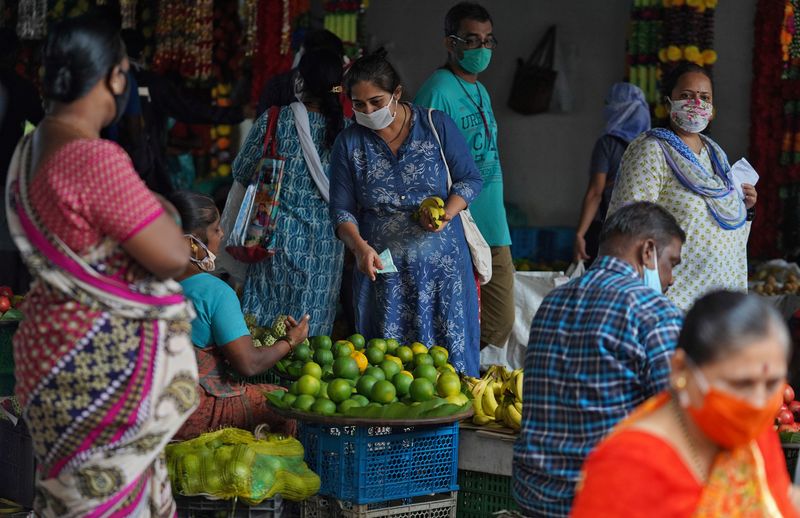By Ira Dugal
MUMBAI (Reuters) - Twelve large Indian states, which have released their local budgets over the past few weeks and forecast aggressive spending growth in 2023-24, are likely to fall short of their targets posing a risk to economic growth, experts said.
The states - including Maharashtra, home to the country's financial capital Mumbai, India's most populated state Uttar Pradesh and Prime Minister Modi's home state of Gujarat - are estimating expenditure to have risen 21.5% in 2022-23, and plan to increase it further by 11% in 2023-24.
However, actual spending data available for the April 2022 -January 2023 period shows expenditure rose only 11% compared to a year ago.
Economists say this trend was likely to be seen across all states.
GRAPHIC: Spending pattern of 12 large Indian states https://www.reuters.com/graphics/INDIA-ECONOMY/byvrlmwlyve/chart_eikon.jpg
Indian states release their local budgets through the months of February and March, after the federal budget is proposed.
"While the latest budgets are factoring in an aggressive spending growth in the coming year (2023-24), it must be borne in mind that states have generally failed to achieve their spending targets in recent years, I-SEC PD economists Tadit Kundi, A Prasanna and Abhishek Upadhyay wrote.
Indian states collectively tend to spend more than the federal government and have an important bearing on growth and welfare.
"Expenditure (as a % of GDP) has fallen in FY23, despite buoyant revenues," wrote Pranjul Bhandari, said India chief economist at HSBC Securities and Capital Markets.
Bhandari attributes slower state spending to an end of a compensation cess, volatility in oil prices and an increase in commitments linked to social schemes sponsored by the center.
"In addition, steps have been taken to dis-incentivize
off-budget borrowings by the states, Bhandari said.
"We believe each of these drivers of lower state spend are likely to spill over into FY24."
GRAPHIC: Indian states borrowed less than budgeted in 2022-23 https://www.reuters.com/graphics/INDIA-ECONOMY/xmpjkbdlrvr/chart_eikon.jpg
A lower rate of state borrowings, however, could provide some breathing space for the bond market, making for a silver lining, they said.
Economists at HSBC expect state fiscal deficit to be 2.3% of the country's gross domestic product (GDP) in FY23 and 2.5% of GDP in FY24, both lower than the normal permissible limit of 3% of GDP.

I-SEC PD expects states to borrow a gross amount of around 8.1 trillion Indian rupees and a net amount of 5.3 trillion rupees in the coming year.
In FY23, states borrowed 7.6 trillion rupees, below the budgeted 9.1 trillion.